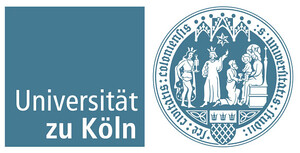Albertus-Magnus-Platz
50923 Cologne
Germany
While the debate on restitution and other decolonizing practices of museums is getting a lot of public attention, this international conference is shifting focus to small-scale institutions and art spaces and their specific decolonizing practices and sensibilities.
Unlike museums, which are dealing primarily with the politics of collecting, exhibition-making, provenance research and the necessity of restitution, small-scale institutions and art spaces can offer participatory epistemological platforms for research-based political processes as well as places for conviviality and exchange. They are raising sensibilities together with artists, researchers, activists and audiences, while discussing and experiencing how to relate to the history and current situation of a specific place in the context of a global colonial situation.
In contrast to centralized approaches to decolonization, which often do not manage to change existing power relations and inflexible institutional structures, smaller flexible spaces have far more agency to develop what Olivier Marboeuf describes as the “political decolonial gesture,” alternative outside spaces beyond instrumentalization and capitalization. They are more likely equipped to comply with Walther Mignolo’s demand to liberate, through intervention, also knowledge and everyday practices from colonial occupation.
The institutions, spaces and initiatives participating in the conference are engaging with the “histories, presents and futures of Indigenous cultural practices and world-views” (OCA), they are asking how to position a biennial, while exploring “entanglements between the decolonization of structures, mind and history” in a specific place (Contour Biennale 9). They can operate as an “organization of artists, researchers and cultural workers” while exposing “romantic notions of multiculturalism, globalism and identity politics” (Academy of the Arts of the World). They can develop an “extra-disciplinary” approach (Savvy) departing from the assumption that “another knowledge is possible” (B. de Sousa Santos), while their practice is to live and ponder together “on questions surrounding the decolonization of peoples as well as that of knowledge, attitudes and practices” (La Colonie), or developing “speculative narratives… based on a specific and situated point of view, based on forms of life” (Khiasma).
Based on these practices and sensibilities of small-scale organizations and their capacity to offer a platform for civic interests and participation, they suggest a dissent, a space of conflict, that, at a distance from the narrative of Western modernity, might reclaim futurity.
Speakers include:
Nina Möntmann (Introduction)
Aurora Rodonò, Madhusree Dutta / Academy of the Arts of the World, Cologne
Bonaventure Ndikung, Elena Agudio / Savvy Contemporary, Berlin
Nataša Petrešin-Bachelez / Contour Biennale 9: Coltan as Cotton, Mechelen
Kader Attia / La Colonie, Paris
Olivier Marboeuf / Espace Khiasma, Paris
Katya García-Antón / OCA Office for Contemporary Art, Oslo
Harald Gaski / Allaskuvla Guoavdageiadnu Sámi University College, Kautokeino
And an evening lecture presented by:
Françoise Vergès, independent scholar, writer, public educator, anti-racist feminist activist and cofounder of the collective Decolonizing the Arts, Paris, on decolonizing practices and methods in the art field.
Please note that the appearances of Bonaventure Ndikung and Madhusree Dutta will be via Skype.
The conference is convened and moderated by Nina Möntmann, Professor of Art Theory at the University of Cologne, Institute of Art & Art Theory.
Admission is free, but advance registration is required by January 10, 2020 with Luca Tueshaus, luca.tueshaus [at] uni-koeln.de.


